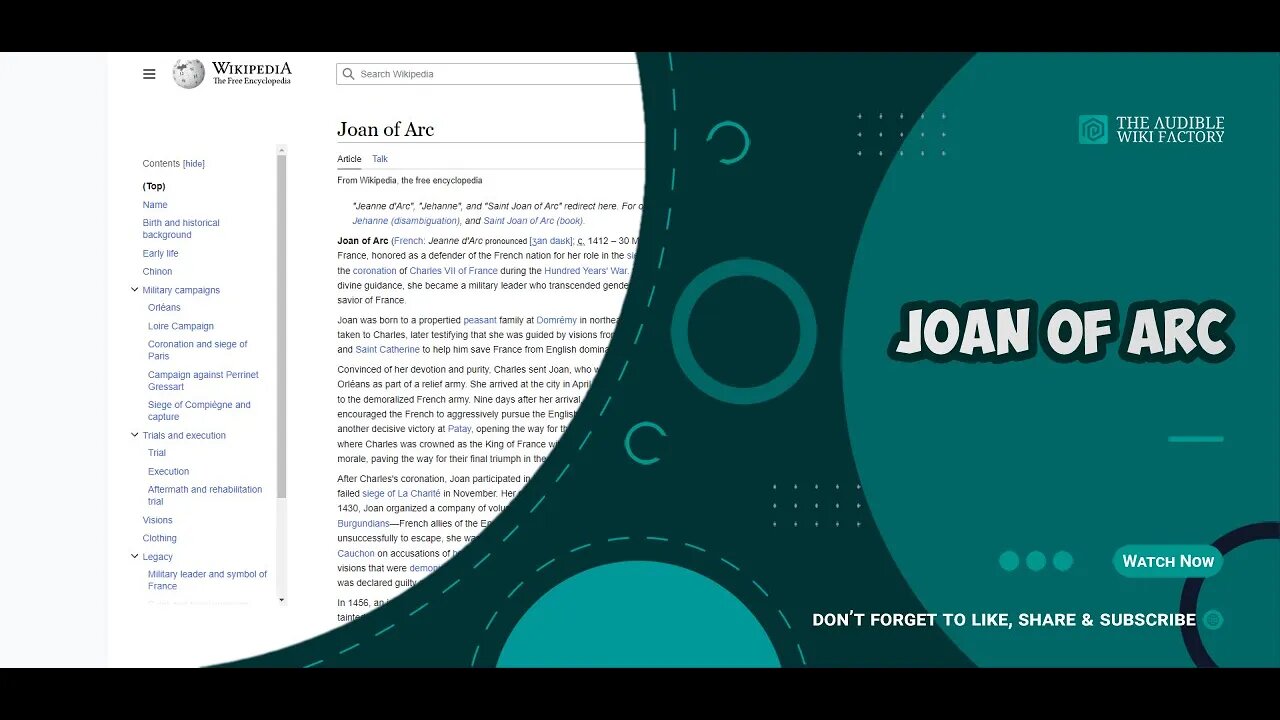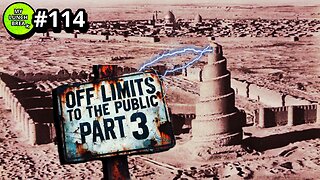Premium Only Content

Joan of Arc is a patron saint of France, honored as a defender of the French nation for her
Joan of Arc is a patron saint of France, honored as a defender of the French nation for her role in the siege of Orléans and her insistence on the coronation of Charles VII of France during the Hundred Years' War. Stating that she was acting under divine guidance, she became a military leader who transcended gender roles and gained recognition as a savior of France.
Joan was born to a propertied peasant family at Domrémy in northeast France. In 1428, she requested to be taken to Charles, later testifying that she was guided by visions from the archangel Michael, Saint Margaret, and Saint Catherine to help him save France from English domination.
Convinced of her devotion and purity, Charles sent Joan, who was about seventeen years old, to the siege of Orléans as part of a relief army. She arrived at the city in April 1429, wielding her banner and bringing hope to the demoralized French army. Nine days after her arrival, the English abandoned the siege. Joan encouraged the French to aggressively pursue the English during the Loire Campaign, which culminated in another decisive victory at Patay, opening the way for the French army to advance on Reims unopposed, where Charles was crowned as the King of France with Joan at his side. These victories boosted French morale, paving the way for their final triumph in the Hundred Years' War several decades later.
After Charles's coronation, Joan participated in the unsuccessful siege of Paris in September 1429 and the failed siege of La Charité in November. Her role in these defeats reduced the court's faith in her. In early 1430, Joan organized a company of volunteers to relieve Compiègne, which had been besieged by the Burgundians—French allies of the English. She was captured by Burgundian troops on 23 May. After trying unsuccessfully to escape, she was handed to the English in November. She was put on trial by Bishop Pierre Cauchon on accusations of heresy, which included blaspheming by wearing men's clothes, acting upon visions that were demonic, and refusing to submit her words and deeds to the judgment of the church. She was declared guilty and burned at the stake on 30 May 1431, aged about nineteen.
In 1456, an inquisitorial court reinvestigated Joan's trial and overturned the verdict, declaring that it was tainted by deceit and procedural errors. Joan has been revered as a martyr, and viewed as an obedient daughter of the Roman Catholic Church, an early feminist, and a symbol of freedom and independence. After the French Revolution, she became a national symbol of France. In 1920, Joan of Arc was canonized by the Roman Catholic Church and, two years later, was declared one of the patron saints of France. She is portrayed in numerous cultural works, including literature, paintings, sculptures, and music.
NAME
Joan of Arc's name was written in a variety of ways. There is no standard spelling of her name before the sixteenth century; her last name was usually written as "Darc" without an apostrophe, but there are variants such as "Tarc", "Dart" or "Day". Her father's name was written as "Tart" at her trial. She was called "Jeanne d'Ay de Domrémy" in Charles VII's 1429 letter granting her a coat of arms. Joan may never have heard herself called "Jeanne d'Arc". The first written record of her being called by this name is in 1455, 24 years after her death.
She was not taught to read and write in her childhood, and so dictated her letters. She may have later learned to sign her name, as some of her letters are signed, and she may even have learned to read. Joan referred to herself in the letters as "Jeanne la Pucelle" (Joan the Maiden) or as "la Pucelle" (the Maiden), emphasizing her virginity, and she signed "Jehanne". In the sixteenth century, she became known as the "Maid of...
LINK TO ARTICLE: http://en.wikipedia.org/wiki/Joan_of_Arc
TAGS: Joan of Arc, Wrongful executions, Women mystics, Women in war in France, Women in medieval European warfare, Women in 15th-century warfare, Roman Catholic mystics, Reputed virgins, Prophets in Christianity, People from Vosges (department), People executed under the Lancastrians, People executed for heresy, People executed by the Kingdom of England by burning, Patron saints of France, Overturned convictions in France, Michael (archangel), Medieval French saints, History of Rouen, French Roman Catholic saints, French prisoners of war in the Hundred Years' War, Female wartime cross-dressers, Executed people from Lorraine, Executed French women, Christian female saints of the Middle Ages, Canonizations by Pope Benedict XV, Beatifications by Pope Pius X, Armagnac faction, Anglican saints, Angelic visionaries, 15th-century French people, 15th-century French women
#GeneralKnowledge #AudibleWikiFactory #Audible #Wikipedia #JoanofArc
-
 34:34
34:34
The Audible Wiki Factory
1 year agoSaint Patrick's Day, or the Feast of Saint Patrick, is a religious and cultural holiday held on
780 -
 LIVE
LIVE
Vocalot
19 hours agoDay 6! New Here! New Rumble Friends!? 🤙
2,008 watching -
 34:27
34:27
The Connect: With Johnny Mitchell
12 hours ago $5.73 earnedCan He Stop Them? Inside Trumps War On Mexican Drug Cartels & The New Era Of Mexican Organized Crime
13.5K2 -
 2:33:15
2:33:15
Tundra Tactical
4 hours ago $4.68 earnedLuis Valdes Of GOA Joins The Worlds Okayest Firearms Live Stream!!!
14.9K -
 1:03:41
1:03:41
Man in America
13 hours agoAre Trump & Musk the COUNTER-ELITES? w/ Derrick Broze
43.6K30 -
 3:45:08
3:45:08
DLDAfterDark
4 hours ago $5.67 earnedDLD Live! SHTF Handguns! Which Would You Choose?
24.4K2 -
 1:50:38
1:50:38
Mally_Mouse
7 hours agoSaturday Shenanigans!! - Let's Play: Mario Party Jamboree
40.5K -
 1:13:00
1:13:00
Patriots With Grit
11 hours agoWill Americans Rise Up? | Jeff Calhoun
29.1K10 -
 14:55
14:55
Exploring With Nug
11 hours ago $10.50 earnedWe Found Semi Truck Containers While Searching for Missing Man!
47.6K7 -
 27:57
27:57
MYLUNCHBREAK CHANNEL PAGE
19 hours agoOff Limits to the Public - Pt 3
108K62